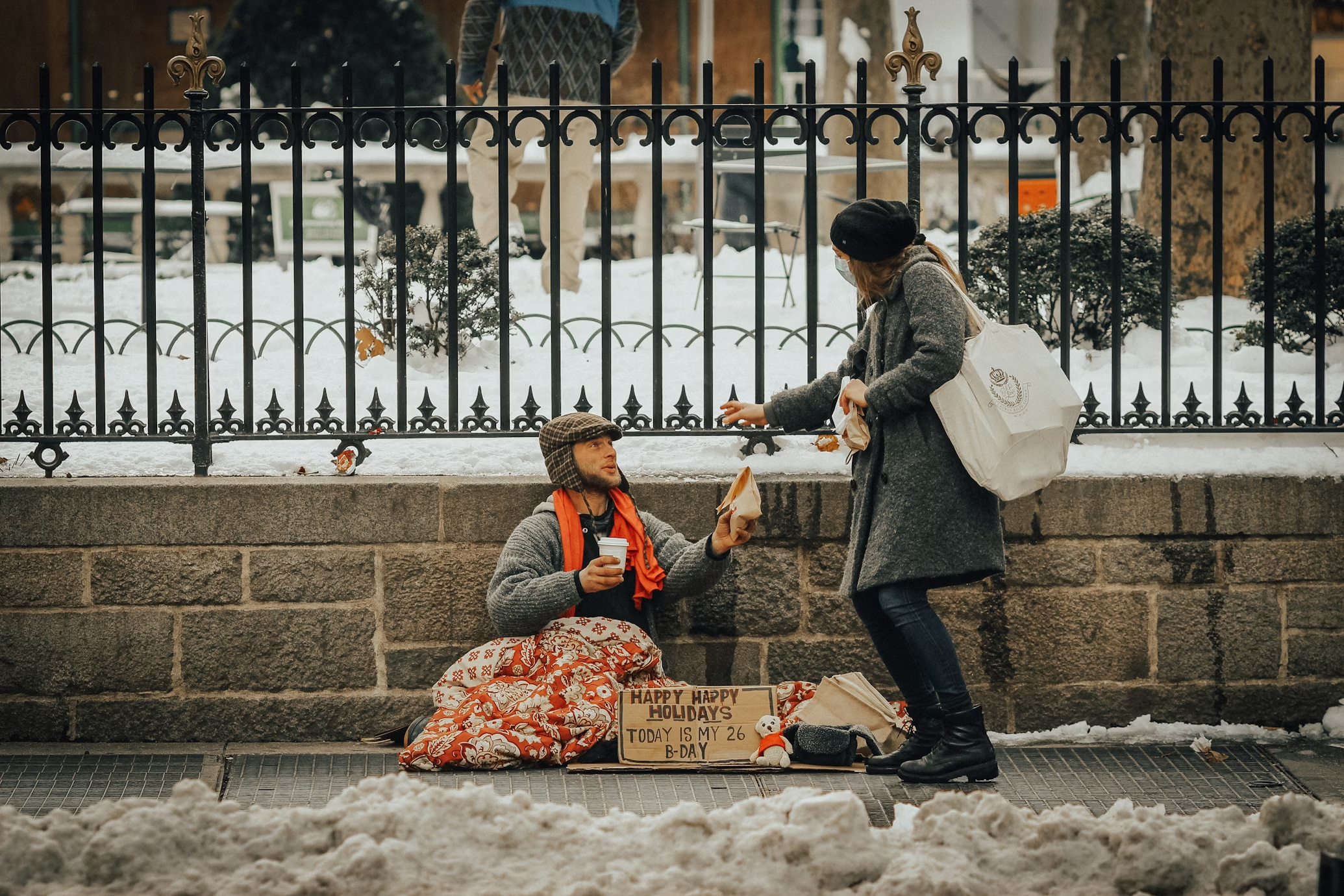
Suggested Reading: Poverty, by America by Matthew Desmond
A professor at Princeton University, Matthew Desmond describes not only the causes of persistent poverty in America, but how it impacts people living in poverty. As he did in his Pulitzer-winning book, Poverty, Desmond sympathetically shares the stories and challenges of people in poverty to put a human face on it. He uses statistical evidence of the consequences of government policies which have maintained poverty since the 1970s. He estimates that an investment of $177 billion would lift everyone currently in poverty above the official poverty line.
Did you know that US poverty is the worst among the developed nations? One in six US children lives in poverty. People in poverty pay more for many services than do middle- and upper-class people. For instance, people in poverty lack access to large grocery stores in walking distance to be able to purchase basic necessities at reasonable prices. Small corner stores charge much more for food, the selection is limited, and fresh meats, fruits and vegetables may not be available. Poor nutrition leads poor health outcomes. The poor are generally unable to use traditional banks and end up paying high fees to have their paychecks cashed. If they do use a bank, they are charged outrageous overdraft fees that accumulate daily. Payday loan establishments take advantage of them, charging exorbitant fees.
Rich people do not generally use many of the public services that the poor depend on and thus have no incentive to see them improved. The country has allowed the deterioration of public services such as transportation and is just now re-investing. Politicians falsely claim that there are millions of people on welfare who don’t want to work and are leeches on society. Studies show that welfare is typically only used for short periods of time in emergencies. Welfare offices have made signing up for benefits more difficult and confusing over time resulting in people not getting the benefits for which they are entitled.
Harbor Country has seen a dramatic rise in rents in the last several years, as has the rest of the country. The US failed to invest in public and subsidized housing for low-income households over the last 50 years, resulting in a critical shortage and landlords able to name their price. Utility increases outpace rises in wages. Developers build high-end high-rises and mansions because they make more money.
Segregation by income and/or race contributes to persistent poverty. Studies indicate that when impoverished black students attend integrated schools, they perform better than their peers in racially segregated schools. There are intangible benefits to people of different economic and social classes having more meaningful contact than merely a patron and a fast-food worker.
Tax policy is a major factor in creating and sustaining poverty. The very rich and corporations do not pay their fair share. The rich can afford tax attorneys to find loopholes and ways to shelter income from taxation. Corporations have the ear of lawmakers who create tax and other policies that increase profitability at the expense of workers. People in poverty pay fees to have their taxes done and they can ill afford to. Many working poor people don’t take advantage of the EITC (Earned Income Tax Credit) because they don’t know about it or need help signing up.
Too many employers keep wages suppressed and offer limited or no benefits. People in poverty often work more than one job just to make ends meet. The decline in union membership correlates with declines in wages and benefits. Unions historically have had a huge impact on growing the middle class.
The shocking part of the book to me was that I am a beneficiary of persistent poverty. I’m a co-conspirator! I can buy many goods and services at very reasonable prices because the people providing them are paid too little. The minimum wage has fallen dramatically behind the cost of living over the last several decades. I receive tax benefits from paying my mortgage. Renters don’t have that opportunity. Student loans and government grants help middle class students tremendously. Am I willing to pay more? Am I willing to become what Desmond calls a “poverty abolitionist”?
The last third of his book suggests various ways that citizens and government can address persistent poverty such as:
- Investing in mixed income housing development (change zoning laws and incentivize developers)
- Raising the minimum wage with a formula that automatically increases with the cost of living that doesn’t rely on Congress
- Increase and revamp unions (e.g., one union for all restaurant workers rather than one union just for McDonalds)
- Improve and subsidize public transportation
- Restructure the tax code (Raise taxes on the rich and corporations)
- Close tax loopholes and go after tax cheats
- Make access to banking services available to the poor without usurious penalties
- Implement a guaranteed universal basic income policy
- End racial and economic segregation
- Rent controls
- Help low-income households to purchase homes (mortgages payments are less than rent)
If you would like to read Matthew Desmond’s book, you can purchase it at the following link by clicking HERE
